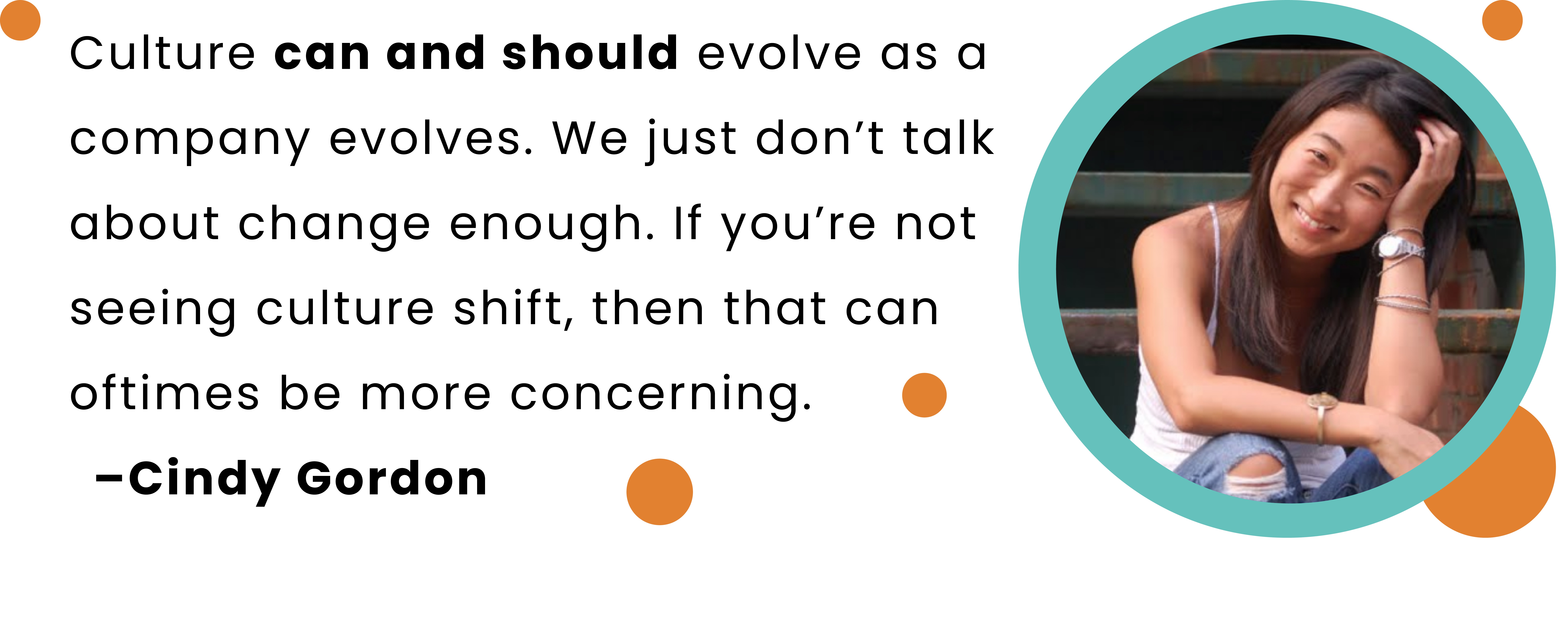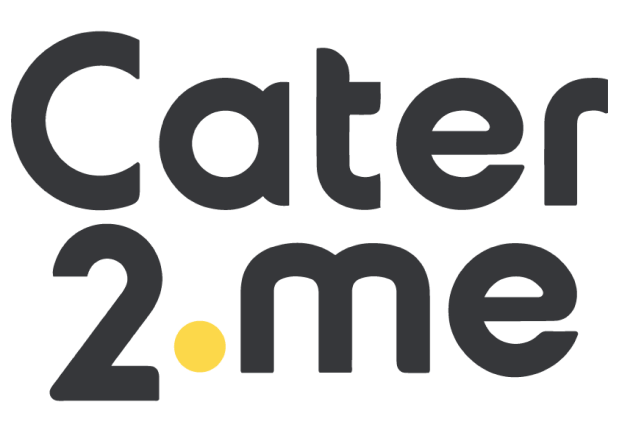This week, in our new blog series Culture Collective, we sat down with Cindy Gordon, Vice President of People at Policygenius, an Insurtech company that enables people to compare insurance options, currently based in New York, NY (and building a second headquarters in Durham, NC). Cindy aims to shine a light on the human aspect of the workplace by inspiring purpose-driven outcomes that align with business goals. Previously, she was Head of People at Oscar. She also spent 10+ years at McKinsey in various roles spanning Human Resources and Benefits, recruiting, and professional development. In her spare time, she runs a fashion-consulting business and takes orders from her ferocious Yorkie-poo, Bert.

What are three words you would use to describe your workplace culture? Explain.
The first word that comes to mind is problem solving — which is a very prominent one for Policygenius as it’s one of our six values. Policygenius is at a stage of building and operationalizing at the same time. And while there is a lot that we know at this point — there’s also a lot that we still do not know. The ability for individuals and teams to problem-solve themselves out of ambiguity and be resourceful are much-needed traits to be successful here at our company. As Jennifer Fitzgerald, our CEO says: “We need people who know when to break down a wall or walk through a door.”
The next word is authenticity. I’m very proud to say that we scored in the 90th percentile range via our last employee engagement survey for the question: “I feel like I can be my authentic self at Policygenius.” I was a little nervous as to where we’d land, because we hadn’t asked that question before; and it’s hard to know without talking to people about it. But, with 100% participation in our engagement survey, that was just really refreshing for me to see. The fact that people feel that way is an indication that we’ve created an open, inclusive, and accepting workplace for people.
The last word is fast-moving. I think one analogy we like to use is that we’re flying the plane while we’re building it. It can be very challenging to build a company’s foundation while also trying to keep things moving. It’s even more important now where we’re at in our growth as a company. We are 250 people and there’s a need to be strategic and operational at the same time. That intersection of abilities and skill-set is hard to find in one person. It’s super important for us to have those skills at play, because we need to stay ahead of our growth and have just enough structure and consistency in place to be agile at the same time.
What is your office super power?
Navigating complex people issues in the workplace. This can be on individual, team or organizational levels. I’ve always loved studying others’ behavior dating back to my childhood days of trying to figure out how I fit in as a transracial adoptee in a small Midwestern town. I carried those observation skills with me and thankfully turned them into something productive and useful in my career.
Why is company culture important?
“Culture” is such a nebulous term and it can honestly take on a host of different meanings for different people. For me, it’s the framework for how a company sets baseline expectations in working with people. In practice, it’s how a company makes decisions and rewards behavior. I currently have one opinion out of 250 people at Policygenius, so it’s important for me to understand what it means to each person as well. Outside of setting baseline expectations for our employees, anything else beyond that is open for the authentic individuals on our team to bring to the table. That is what leads to creativity and innovation. Culture can and should evolve as a company evolves. We just don’t talk about change enough. If you’re not seeing culture shift, then that can oftimes be more concerning.
What does your team normally do for lunch?
Policygenius’ love language is definitely food! We’ve quickly learned that it’s a great way to foster community. Lunchtime can take on a variety of personas depending on the day and the occasion. We have a common area café, where many of the team members simply congregate to connect and catch up over food. I always love seeing the mix of people across teams — not just people from the same desk bank who relocate to a table to eat. The lunch tables might be made up of people from the same start date cohort or a group that just met at a recent Policygenius social event. We are also lucky to have a rooftop deck in our building — so, when the weather is nice, a lot of people will hang out there and take in the lovely view. There are also special occasions when we’ll do catered meals — such as monthly new hire welcome events, company milestones, and training sessions. Lastly, we’ve experienced instances when team members are impacted by real world events — and we’ve found a way to share in our feelings and provide support via our best friend, food.
What are ways your company brings your team together?
We’ve found that we get a lot of community engagement here at Policygenius through our company-led learning and development training sessions. One of the most popular modules is our problem-solving training. We want to make sure that we’re teaching people what we mean by problem solving given “Work the problem” is one of our company values, a heavily-weighted competency in our skills rubric, and a natural part of the day-to-day work at Policygenius. We hold a variety of monthly, company-sponsored social events with involvement from representatives from across the company who help in planning and execution. Karaoke and trivia night have long been big hits. And we recently ran a spelling bee, which became quite contentious! In addition, we’ve hosted wellness events, like meditation and monthly massages. We also support common interest and resource groups — such as our parents group, PgPride (our LGBTQ+ affinity group), sports teams (like kickball and basketball), and various clubs (like run and book clubs).
If you could propose an idea to positively impact any company’s culture, what would it be and why?
Include your employees in the ideation process by asking them what is and isn’t working. Otherwise, try conjuring up ideas on your own can feel like throwing spaghetti at the wall when not involving others in some aspect of the creation process. There are a lot of different methods to obtain input to make sure that people have a voice and feel like they can safely share their ideas. For example, each of our co-founders have office hours, which we call “Ask Me Anything” (AMAs). Each week, we send out an anonymous, company-wide form where people can submit questions for us to address at All Hands. This provides a safe avenue for individuals who don’t feel comfortable raising questions in any other forum. We also train up our managers and leaders to proactively ask for input during their one on ones and team meetings. If you really want to impact culture and/or shift behavior, then you have to try a variety of different micro-actions to move the needle. If you only focus on one element, you could be missing the mark, because there’s no one way to solve it.











